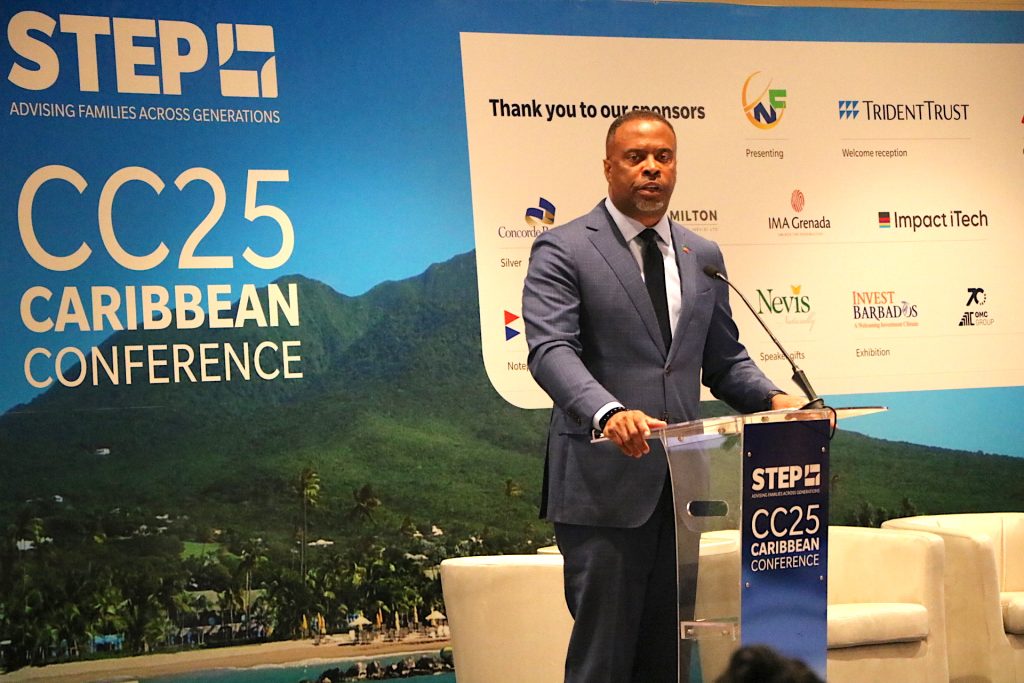The Indispensable Role of Small International Finance Centers in Global Economic Stability
Premier Mark Brantley’s address champions the vital, yet often misunderstood, role of small international finance centers (IFCs) like Nevis in ensuring global economic stability. These jurisdictions, frequently mischaracterized as tax havens facilitating illicit activities, are, in reality, crucial cogs in the complex machinery of international finance. They provide specialized financial services, facilitate cross-border investments, and offer efficient platforms for global capital flows, ultimately contributing to economic growth and development, particularly for developing nations. Brantley argues that IFCs, through their robust regulatory frameworks and commitment to transparency, play a critical role in preventing financial crimes and ensuring the integrity of the global financial system.
Small IFCs operate within a highly regulated environment, often exceeding the standards set by larger, more established financial centers. They adhere to international best practices, including rigorous anti-money laundering (AML) and know-your-customer (KYC) regulations, and actively cooperate with global organizations like the Financial Action Task Force (FATF) to combat financial crimes. This commitment to transparency and regulatory compliance counters the narrative of secrecy and illicit activity often wrongly associated with these jurisdictions. Brantley emphasizes that IFCs are not havens for tax evasion but legitimate facilitators of international trade and investment, fostering economic growth and creating opportunities for both developed and developing countries.
The premier highlights the significant contribution of IFCs to global capital mobilization and allocation. They provide efficient platforms for investment, channeling funds from capital-rich regions to capital-poor countries, thereby fostering development and stimulating economic growth. The specialized financial services offered by IFCs, such as wealth management, asset protection, and cross-border transactions, facilitate international trade and investment, contributing to the overall health and stability of the global economy. Moreover, these centers often serve as conduits for foreign direct investment (FDI) into developing nations, providing much-needed capital for infrastructure projects, job creation, and economic diversification.
Brantley challenges the prevailing misconceptions surrounding IFCs, arguing that the “tax haven” label is a misleading oversimplification propagated by larger economies seeking to maintain their dominance in the global financial landscape. He underscores the double standard often applied to small IFCs, highlighting the fact that many of the same services offered by these centers are also provided by major financial hubs. However, the intense scrutiny and negative labeling are disproportionately directed toward smaller jurisdictions, often overlooking the similar practices of larger players. This biased approach, he argues, undermines the important role IFCs play in facilitating global economic activity.
The premier advocates for a more balanced and nuanced understanding of the functions and contributions of small IFCs. He calls for greater collaboration between international organizations, governments, and the private sector to foster a fair and transparent global financial system. This involves recognizing the legitimate role of IFCs and working collaboratively to address any legitimate concerns regarding regulatory oversight and transparency. Brantley emphasizes the need for open dialogue and mutual respect, moving away from stigmatization and towards a cooperative approach that benefits all stakeholders.
In conclusion, Premier Mark Brantley’s argument centers on the indispensable role of small IFCs, like Nevis, in promoting global economic stability. These jurisdictions, despite facing unfair characterizations and scrutiny, provide essential financial services, facilitate cross-border investment, and adhere to stringent regulatory frameworks. Their contribution to capital mobilization, economic development, particularly in developing nations, and the overall health of the global financial system should not be underestimated. By fostering greater understanding and collaboration, the international community can leverage the strengths of small IFCs to build a more robust, inclusive, and stable global economy. It is imperative to move beyond the simplistic and often misleading “tax haven” narrative and recognize the valuable contributions of these jurisdictions to international finance and economic growth.
Share this content:












Post Comment